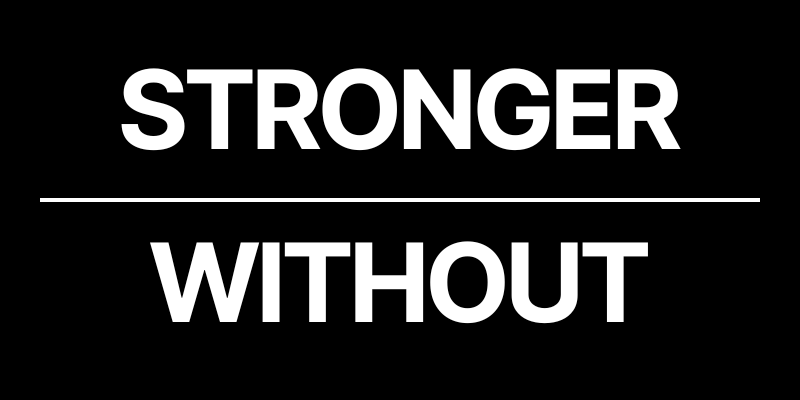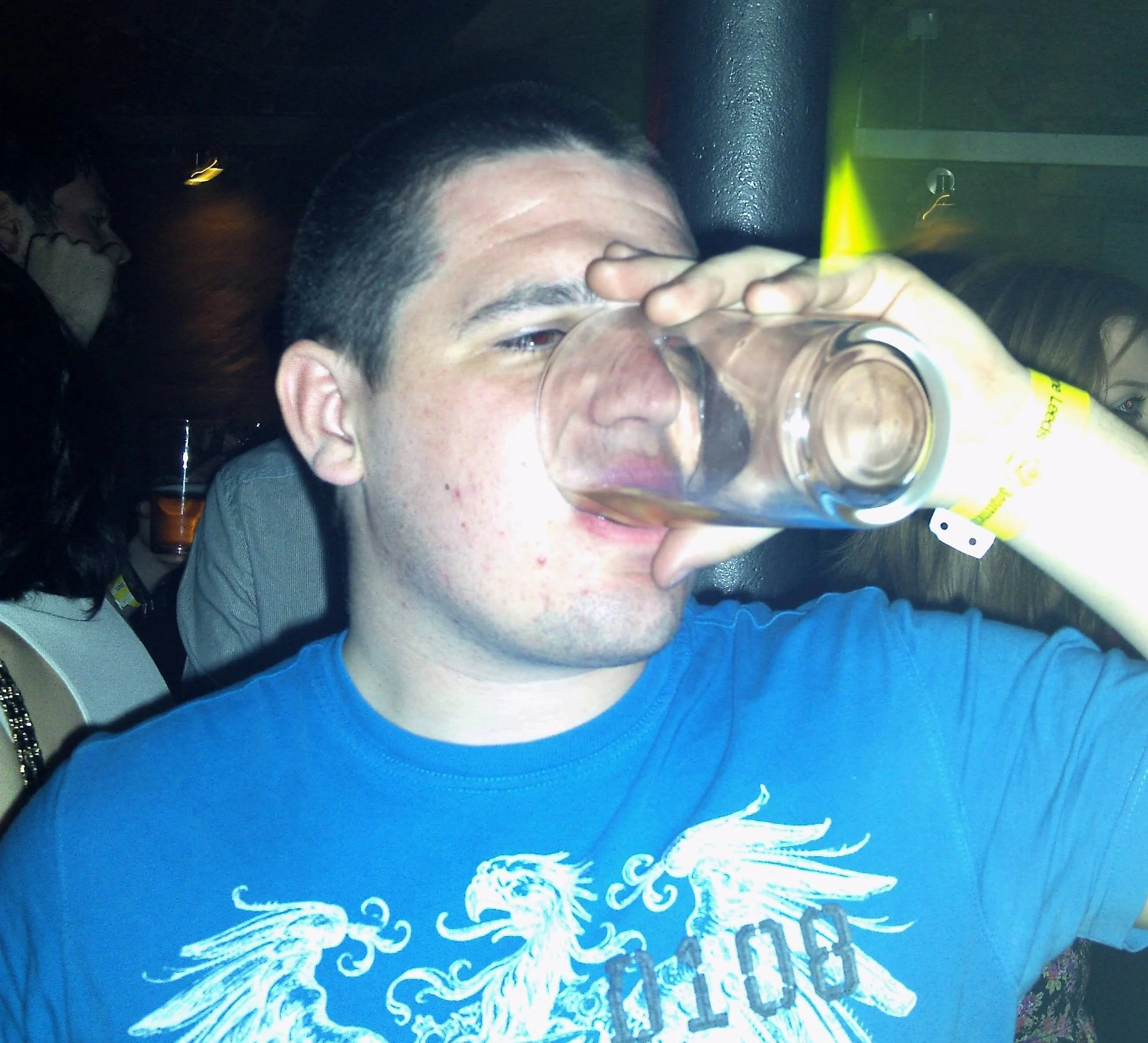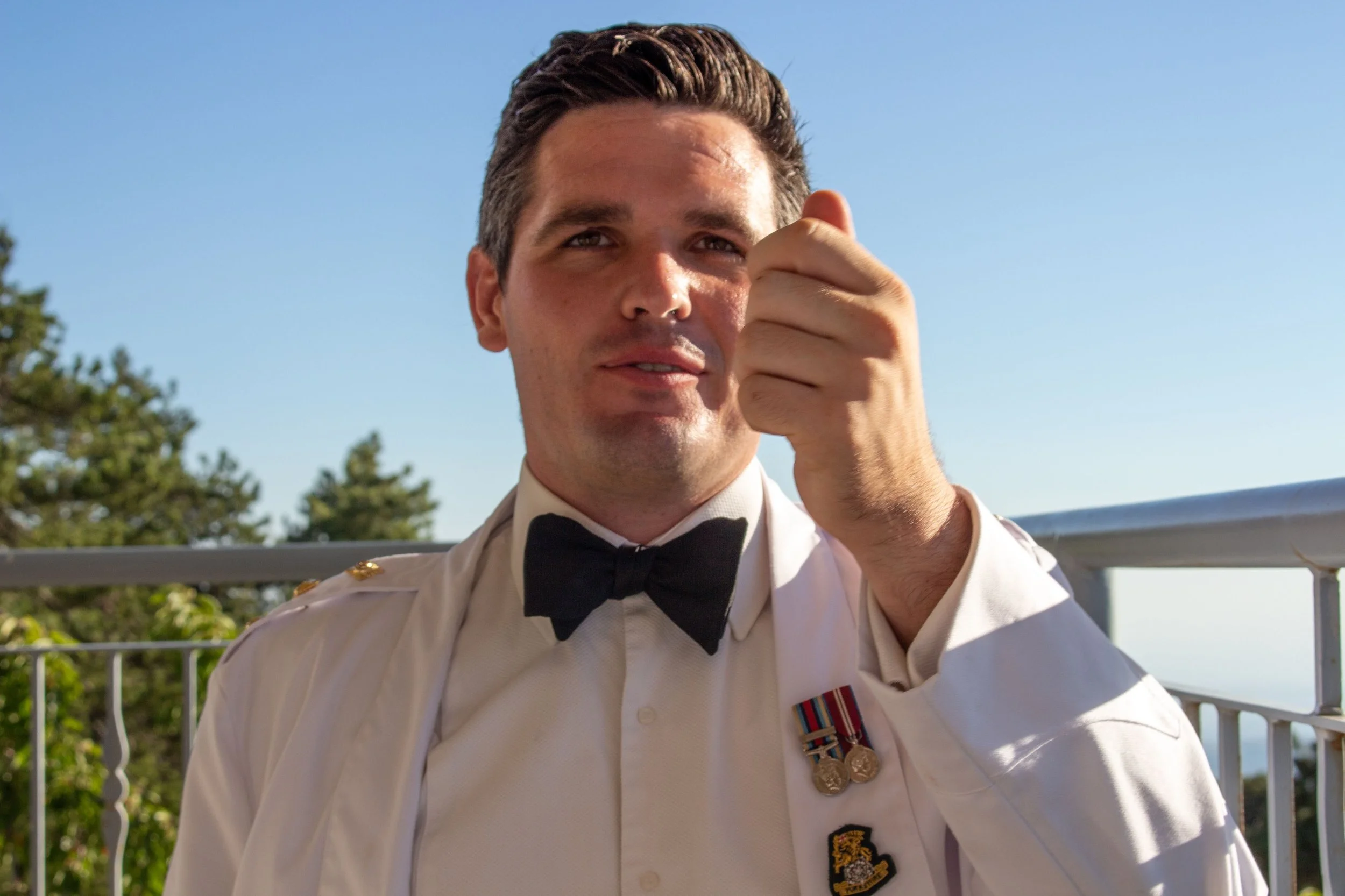You Don't Have to hit Rock Bottom to Stop Drinking
Rethinking the stories we tell ourselves about alcohol, identity, and change.
"Change doesn't have to come from crisis. Sometimes it comes from clarity."
I didn’t stop drinking because I hit rock bottom. I stopped because I started to question why I kept doing something that didn’t serve me anymore, even if it still looked “normal” on the outside.
What Drinking Looked Like
I started drinking young. By sixteen, alcohol was already stitched into the fabric of my social life: cheap lager, White Lightning cider in parks, whatever we could get our hands on. By university, I'd levelled up. Drinking was a performance verging on an art form. Mastering how to down pints or how to sink multiple shots without being sick was part of the course.
My peak drinking days were probably at university. We would sink six pints in the first hour after a rugby match. These were pints of “snakebite”, a half lager, half cider mix in a plastic pint glass, because like children, we couldn’t be trusted with real glass. We all got good at putting away ungodly amounts of alcohol.
At nineteen, I was social secretary for our rugby club tour to Salou in Spain. My job was to make sure everyone had a drink-fuelled, unforgettable time, and I took it seriously. That energy carried straight into the Army, where my uni drinking career set me up perfectly. Early military life was intense: long stretches of discipline and physical demand, followed by weekends of what we called "pulling the pin." Imagine a grenade going off in a small room and you get the vibe.
A decade later, I happened to cycle through Salou on my world bike tour. This was a very different visit to the first.
I've been drunk in more cities than I can count. Cardiff, London, Cape Town, York, Vegas, LA, Limassol, Nanyuki. I could go on. I've dropped stupid amounts of money on nights I can barely remember. VIP booths, huge bottles of vodka with sparklers, gambling away hundreds. Sometimes I'd win it all back and lose it again.
None of this is a sob story. At the time, I loved it. I've got memories that still make me laugh. But for all the chaos and comedy, there was another side: fights, blackouts, waking up with that stomach-drop feeling of what did I say last night?
At 18, peak performance in the sport of binge drinking.
Why I Questioned It
On paper, I was doing fine. I’d just turned 31, had a solid job, a good relationship, and I'd just come back from cycling around the world. Physically, I was in the best shape of my life. But it was lockdown, and I noticed I'd started drinking more at home. Not big sessions. Just a couple of bottles of wine during those virtual quizzes that we all suddenly felt obliged to do. Waking up with a dry mouth and banging headache on a random Tuesday, feeling like it was a waste of time.
That's what unsettled me.
I wasn't waking up in gutters or missing work. I wasn't what you'd call an "alcoholic," at least not by British standards. Here, drinking ten pints on a Friday is seen as completely acceptable, even encouraged, especially in the military or rugby circles. But something didn't sit right. I started asking: Why am I still drinking like this?
The wild nights were fewer by this point, but the pattern hadn't really changed. I'd drink because it was expected, because it was easy, because it was what I'd always done. But I couldn't shake the feeling that I was outgrowing it. Not in a moralistic way, just in a this doesn't feel like me anymore kind of way.
Then there were the physical signs. For over a decade, I'd been ignoring stomach pains that felt like someone twisting a knife in my gut. After an endoscopy, I was diagnosed with gastritis which is an inflamed, irritated stomach lining that surely wasn't helped by years of drinking. The initial diagnosis was a wake-up call, but it wasn’t enough to make me stop drinking. I continued drinking for another 18 months after the diagnosis, luckily without any symptoms. Because the symptoms and pain were so occasional and unpredictable, I could go for months feeling completely fine. Linking the gastritis with my drinking was not my first thought.
The Cultural Lie
One of the strangest things about drinking is how deeply embedded it is in British life. We don't call it a problem until things have gone seriously off the rails. You can be drinking every weekend, spending hundreds, blacking out, fighting strangers, and no one bats an eyelid. As long as you're turning up to work on Monday, you're doing fine.
I told myself that I would only drink socially. Or I would only drink on weekends. That was until I didn’t. Then I’d move the goalposts again, “I’ll only drink every other day, and only in the evenings” or “I’ll only drink wine and beer, never spirits”.
It wasn’t constant chaos. Some weeks I barely drank. But the hangovers hit harder, and the consequences lasted longer.
We don't talk about alcohol the same way we talk about other substances. We don't call someone who smokes every day a "smokeaholic", they're just a smoker. But with alcohol, we only apply labels when someone's life is visibly falling apart. Until then, it's all banter and blurry selfies and another night to chalk off.
For years, I thought the only people who stopped drinking were those who had to. The ones who hit rock bottom, got warnings from doctors, lost their jobs, wrecked their relationships. Or people that woke up and had to drink hard spirits just to feel normal.
But that's a lie. You can question your relationship with alcohol long before it crashes you into the ground.
Stopping didn't make me perfect, not by any measure. But it did help to make me more honest with myself. I realised I didn't need to justify quitting by proving how bad things had got. It was enough to notice that drinking no longer aligned with the kind of man I wanted to be.
What I Learned About Change
You don't need a crisis to create space for reflection. You just need to get curious about your own patterns.
Start with gentle questions:
How do I actually feel after drinking? (Not how I think I should feel)
What am I hoping alcohol will do for me in this moment?
If I removed drinking from this situation, what would I need instead?
Notice without judging. For weeks, I just observed. I noticed I drank more when I felt socially anxious. I noticed I used alcohol to transition from "work mode" to "weekend mode." I noticed I often drank not because I wanted to, but because everyone else was.
Experiment in small ways. Instead of declaring "I'm never drinking again," I started with "I’m going to see what this party feels like sober." I did this for my final military dinner night, something that is a very boozy event. I would normally have been front and centre when it came to drinking from the glass boot that held a few pints. Instead I woke up feeling fresh and went for an early morning run. Moments like this are low stakes but high learning.
Find your why. My reason was that I wanted to feel more like myself. Maybe yours is wanting better sleep, saving money, or being fully present with your kids. Start there, not with what you think you should want.
The evening of my final military dinner night. You can look put together on the outside and still feel lost underneath the surface.
What Life Actually Looks Like Now
At first, I didn't think I was quitting for good. I just wanted a break to see how I felt. But the longer I stayed off it, the clearer things became.
Physically, I felt better. I had no more stomach pain, better sleep, more energy. But it was the mental clarity that surprised me most. I wasn't constantly second-guessing myself the morning after a night out, trying to remember if I'd said or done something stupid. I didn't have to apologise for anything. I didn't wake up with that anxious pit in my stomach.
Socially, it was strange at first. Some people were supportive. Others didn't get it. There's a weird discomfort people have when you say you're not drinking. Like you're holding up a mirror they didn't ask for. But I learned to let that go. I wasn't doing it to prove anything. I just didn't want to keep showing up in ways that didn't feel like me.
Practically, it takes a bit of time to get used to not just going along with everybody else. A couple of things I’ve found useful:
Be ready with your drink order when you go to a bar or pub. I usually just get a lime and soda. Order it confidently and don’t feel the need to explain.
I found that once I told people that “I don’t drink” as opposed to “I’m not drinking tonight”, I no longer received those nudges from people to try and convince me to join them in drinking. People who drink often see someone else choosing not to as a threat to the fun they want to have. This is their issue and not yours.
Be prepared to evaluate whether some relationships were built around drinking rather than genuine connection. True friends will support your choices; drinking companions might resist them. This isn't about judging anyone. It's about understanding what you need.
If tempted to drink, think about the next day and how proud of yourself you will feel waking up with no hangover. Make plans early such as to do exercise or go for an early coffee with a friend.
Subscribed
Life didn't suddenly become perfect when I stopped drinking. I still had to deal with the same stress, uncertainty and the odd shit day. But I handled it better. Never with a hangover and in a more grounded and present way. I'm more available for the people I care about, more reliable, never having to bail on a commitment because I had a few too many the night before.
Looking back now, I don't regret the wild nights. They were part of my life, and some still make me laugh. But I'm not that man anymore. And I don't want to be.
I realised quitting wasn't about sacrifice, it was about emotional freedom. I was no longer outsourcing my joy or confidence to a bottle.
Change Doesn't Have to Come from Crisis
You don't have to hit rock bottom to make a change. You don't need a dramatic story or a diagnosis. Sometimes it's enough to admit that something just doesn't feel right anymore and to trust your instinct.
If you've ever wondered whether your drinking is serving you, that's reason enough to pause and look more closely. Not to punish yourself or to label yourself. Just to ask an honest question: Is this still helping me become the man I want to be?
Maybe you'll take a break. Maybe you'll stop altogether. Or maybe you'll just start paying more attention. Whatever it looks like, change doesn't have to come from crisis. Sometimes it comes from clarity.
Five years on from my last drink. Feeling healthier and more present than ever. Here’s to many more years of sobriety and clarity.
What patterns in your life have you outgrown but still find yourself repeating? It doesn't have to be drinking. Maybe it's scrolling your phone, saying yes to every social obligation, or that internal voice that tells you you're not doing enough.
Try this: For the next week, just notice. Don't change anything and don't judge yourself. Just get curious about one pattern that doesn't quite fit who you're becoming.
Then ask: Is this still serving the man I want to be?
Let me know what you discover. Sometimes the most powerful changes start with the quietest questions.




